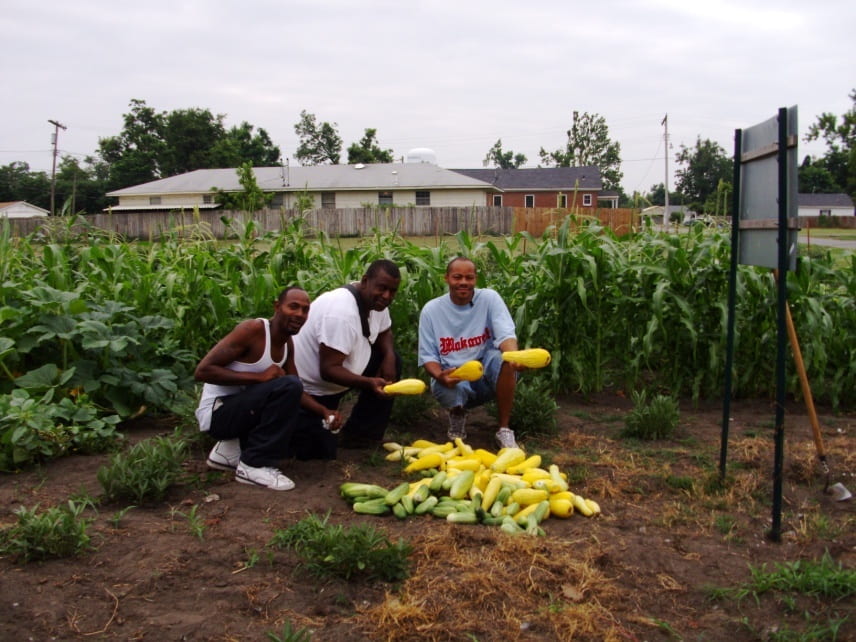Men on the Move: 2008-2013


Project Dates: 2008-2013
Pemiscot County has one of the highest rates of cardiovascular disease in Missouri and African Americans are at greatest risk of developing this disease. Men on the Move was developed as a result of the work of Pemiscot County Heart Health Coalition.
The Heart Health Coalition started with efforts to increase knowledge and skills around nutrition and physical activity as a way to reduce cardiovascular risk. While it is known that nutrition and physical activity are important risk factors for cardiovascular disease, community partners recognized that to make progress toward reducing cardiovascular disease, root causes needed to be addressed first. For example, before recommending consumption of certain foods over others, we must face fundamental challenges such as unemployment. Many African American community members in Pemiscot County are concerned with finding the resources to put any food on the table.
To address cardiovascular disease as well as the root determinants, Men on the Move is developing and evaluating a community food system. This community food system will allow Men on the Move to combine a focus on educational and economic factors with increased access to and consumption of fresh fruits and vegetables. As part of the development of a community food system, Men on the Move is:
- increasing knowledge of cardiovascular disease risk factors and the benefits of fruit and vegetable consumption through cooking demonstrations and education
- providing community members, especially African American men, opportunities to develop job skills that will enhance their ability to work with others
- creating employment opportunities for African American men in the area. strengthening partnerships with local government officials including the mayor, economic development offices and local businesses
- working with business owners and local community-based organizations to develop new opportunities for fruit and vegetable distribution
- assisting with the start up of a community farmers’ market to increase access to locally grown vegetables and fruits
- changing the food environment to create awareness of healthy eating habits through point of decision prompts (shelf talkers) and newsletters for community newspapers
- creating opportunities to sustain our community garden work
When we address individual, environmental, and social factors, we increase people’s ability to make a difference in their own lives, making healthier choices possible.
Project Goals
To address the individual, environmental, and social determinants of cardiovascular disease by:
- improving knowledge and skills to increase fruit and vegetable consumption
- improving access to fruits and vegetables
- preparing men for leadership and employment opportunities
Implications for Research and Practice
Many factors contribute to health disparities in the United States. Economic and social factors are among the most challenging to address. Identifying strategies, such as a community food system, that address these factors as well as behavioral and environmental factors related to cardiovascular disease may have the greatest effect in rural communities experiencing health disparities.
Project Contact
Ellen Barnidge: barnidge@slu.edu
Project Staff
Elizabeth A. Baker, PhD, MPH; Ellen K. Barnidge, PhD, MPH; Marjorie Sawicki, MS, RD, LDN; Freda Motton, MPH; Frank Rose; Kim Shackleford; Mario Schootman, PhD
Project Partners
Divine Holiness, St. James Word of Faith, City of Caruthersville, City of Hayti, Chamber of Commerce of Pemiscot County, University of Missouri Extension, Workforce Development
Funding Source
National Institute for Minority Health and Health Disparities: R24 MD00 1590